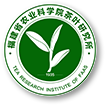Abstract:
A field experiment was conducted to study the effect of biochar application on the physiochemical properties of the soil and the production yield of a tea plantation. Five application rates of biochar on the plantation soil were tested, i.e., 0 (CK), 8, 16, 32, 64 t·hm
-2. All applications were found to reduce the bulk density, increase the total porosity, capillary porosity, field capacity, saturated water content and soil/liquid ratio, and improve the physical properties of the soil. They increased the organic carbon content by 29.55-98.15%, the total soil nitrogen by 8.33-26.52%, the available phosphorus by 13.04-69.25%, and the available potassium by 17.96-167.88% in the soil, as compared to CK. And, the more biochar was applied the greater the percentage increase. On the other hand, the application reduced the soil available nitrogen content by 0.97-1.54%, with no significant difference among the treatments. The applications also increased the tea yield by 3.24-13.49%, with the greatest effect found at the rate of 16 t·hm
-2. But, no significant differences were observed at different levels of the application. The average tea production in three years with the biochar applications increased by 5.44-17.05%. Although the 16 t·hm
-2 application rendered the highest yield, there were no significant differences among the treatments.




 下载:
下载: